Good stories have a dénouement. The Act III moment when all is revealed and the narrative comes in to land is critical to most plays and novels. And so we want it to be with Brexit. Who will turn out to have been right, and who wrong? Whose bluff will have been called, and to whom will go the secret pleasures of ‘I told you so’?
Real life usually disappoints, however. No single event settles matters, and both sides of a dispute tend to find ways of maintaining that they were right all along, and if outcomes confound them then this was somebody else’s fault. Thus, in case it should be needed, Brexiteers are already building their narrative of betrayal: ‘Brussels never believed British threats because traitorous Remainers persuaded Europe that parliament would pull the rug from under the prime minister’s feet.’ And if we do end up with no deal and the sky does not fall in, Remainers, likewise, are readying themselves to explain that it’s apocalypse postponed, not avoided.
Next week I’m off to Pakistan for a short walk in the Hindu Kush, and not back on these pages until late September, when much water will have flowed under the bridge. One is not thanked for being wise after the event, so before events play out (or don’t), I’d like here to examine the possibilities, and ask what the chances are that some key players will be judged to have been right or wrong.
There does exist a chance that leading politicians and commentators will be vulnerable to adjudication. In particular there are two verdicts it may be possible to reach. One bids fair to vindicate or condemn Boris Johnson’s assessments of the possible; and the other could vindicate or condemn leading Remainers’ powers of prophecy.
The imminent test for Mr Johnson is whether Brussels blinks. He has plainly believed (or pretended to believe) that unlike Theresa May he can call what he thinks is Europe’s bluff. The Leaver argument for threatening no deal, which Remainers have always struggled to rebut, has been that, to negotiate effectively, one’s threats have to be both scary and credible to the other side. Johnson has promised he means it and suggested the Europeans do not. Both beliefs may shortly be tested.
Johnson will have noted that the media support he has received for this high-risk strategy has been conditional upon its working, and he has offered us an upbeat hope that it will. Many have hesitantly backed him on the basis of the promise that he can bring home the bacon. ‘Don’t undermine me,’ he has asked; and ‘Don’t undermine him’ has been the media echo. That’s only sensible advice if one has judged that he has a good chance of succeeding. So the wisdom of this media judgment, too, is shortly to be tested.
If Brussels doesn’t blink and we leave without a deal, Johnson has misled us. If he then caves in at the last minute and asks the EU for further negotiations and extra time, then he will have doubly misled us. He could not blame EU intransigence on Remainer MPs (though he would try), because he has always known that parliament would try to avoid no deal. Rebel Remainer MPs are not a new factor that his original strategy reckoned without.
Charged with misleading the country with claims about Europe’s secret willingness to compromise, Mr Johnson could best defend his judgment — if not his character — by confessing that he always knew no deal was a likely outcome, but realised the voters wouldn’t wear it; and so placed us on that path without being honest about where it would lead. ‘I knew it wouldn’t work but I had to lie’ would be an odd way of defending himself, and might have to await his autobiography.
But by 1 November our Prime Minister must surely be revealed as having (a) taken a bold but brilliant negotiating risk (if Brussels blinks, that is); (b) blundered (if it’s Boris who blinks, or if we crash out); (c) tricked the country into no deal as he always intended; or (d) tricked the European Research Group hardliners into a postponement he always wanted. He’s either a high-wire hero, a bungler or a trickster. I don’t see any other possibilities.
If we do crash out, most mainstream Remainers face similar judgments over the threat that has been their principal weapon. They’ve been loud in their warnings that no deal will fast prove a catastrophe. It may take a month or two before we can pronounce, but the immediate chaos Remainers have predicted has been so much part of their narrative (no food, no medicine, transport hell, recession, etc) that we’ll fairly quickly be able to mark their examination papers.
I don’t think they are pretending. Some of them may suspect they’re over-egging it a bit, but most have been persuaded or persuaded themselves that disaster really does stare us in the face. So if disaster does not come to pass then Remain will look even more foolish than it did when the result of the 2016 referendum failed to trigger the economic emergency some of them predicted.
By the end of November Remainers will (a) be lamenting gleefully that they told us so (if the sky has fallen in); (b) (if the sky hasn’t) be exposed as having grossly miscalculated the economic risk and cried wolf; or (c) (if we’ve left with a deal, or postponed again) be congratulating themselves on steering Britain off the rocks.
There appears a decent chance, then, that history may be able to judge rather sooner than history generally can. And my own guess? That a no-deal Brexit is now a real possibility and would prove the beginning of several fraught years in which we negotiate a Mrs May-style post-Brexit vassalage deal with the EU, the latter being prepared to agree, without prejudice, temporary stand-stills in our present trading relationships.
No blowout in the fast lane, then: just the long, faint and dispiriting hiss of a slow puncture. History’s good at charting these, but only years, often decades, later.
Got something to add? Join the discussion and comment below.
Get 10 issues for just $10
Subscribe to The Spectator Australia today for the next 10 magazine issues, plus full online access, for just $10.
You might disagree with half of it, but you’ll enjoy reading all of it. Try your first month for free, then just $2 a week for the remainder of your first year.


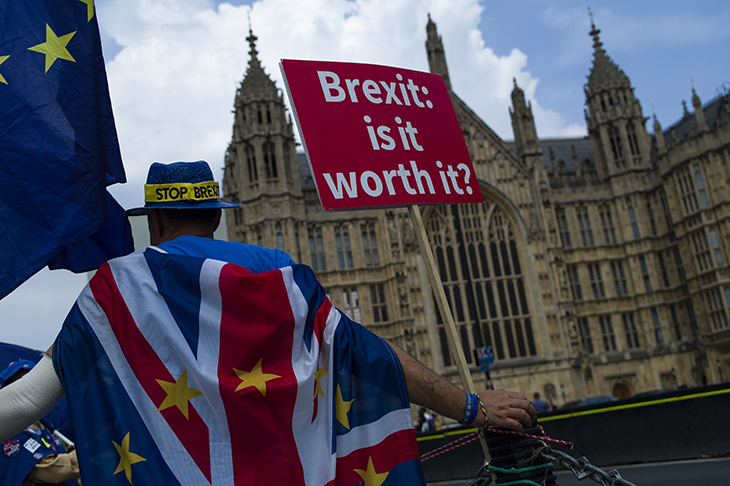
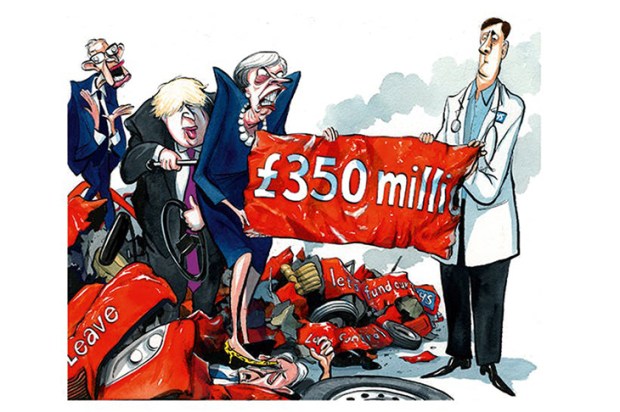
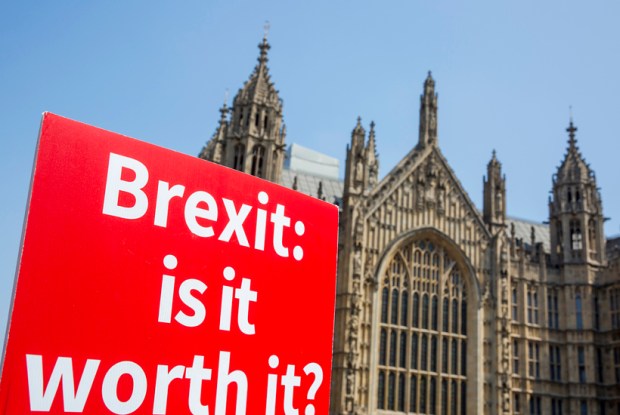
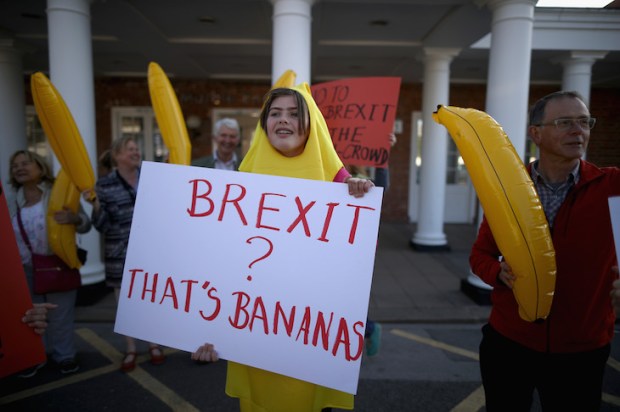
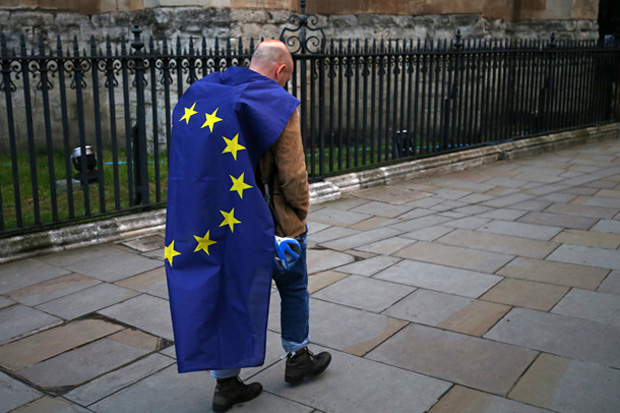
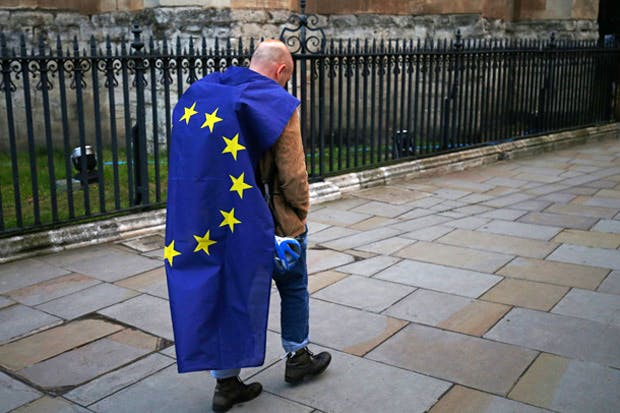







Comments
Don't miss out
Join the conversation with other Spectator Australia readers. Subscribe to leave a comment.
SUBSCRIBEAlready a subscriber? Log in